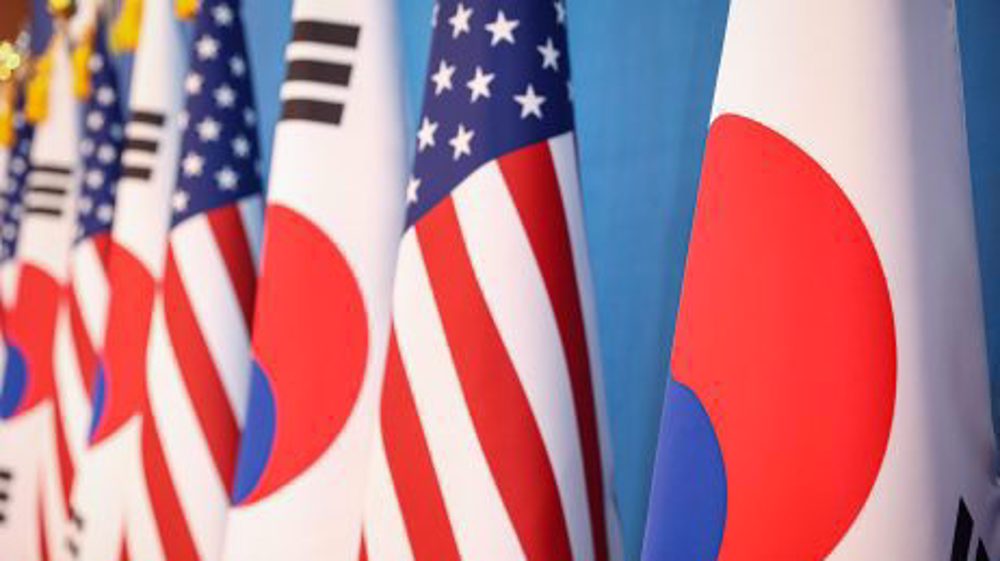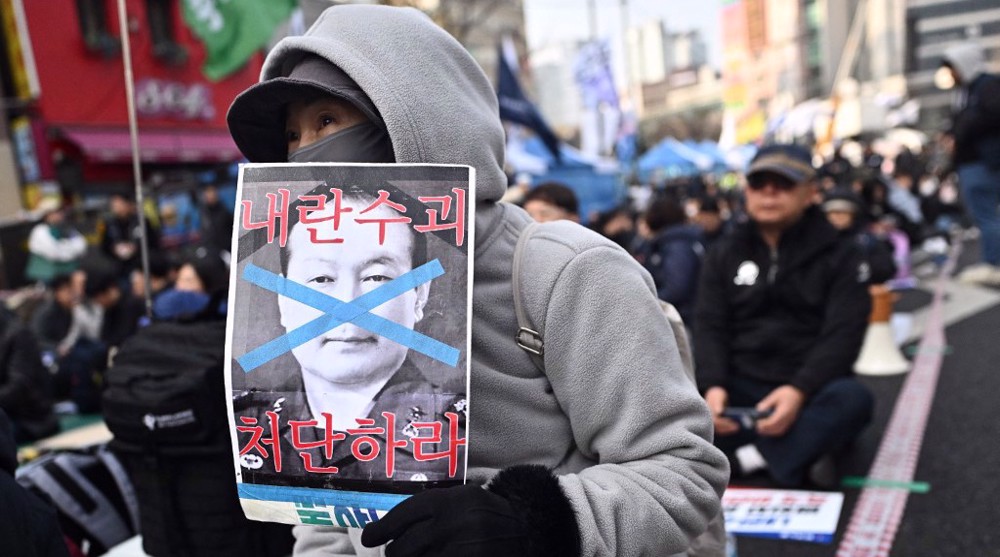‘Comfort women:’ South Korea won’t let go despite deal
South Korean President Moon Jae-in says Japan’s wartime sexual enslavement of Korean women constituted “crimes against humanity,” saying the case is not closed despite a deal between South Korea’s former president and Japan that seemed to resolve the dispute.
“To resolve the comfort women issue, the Japanese Government, the perpetrator, should not say the matter is closed,” President Moon said during a speech marking a national holiday commemorating the anniversary of the country’s 1919 uprising against Japanese colonial rule on Thursday.
“The issue of a crime against humanity committed in time of war cannot be closed with just a word. A genuine resolution of unfortunate history is to remember it and learn a lesson from it,” Moon further said in his strongly-worded speech.
Tokyo is in no position to declare the emotionally charged issue settled, he added.
“Comfort women” is a euphemistic term used in reference to the thousands of women and girls, mostly Chinese and Korean, who were forced by the Imperial Japanese Army to serve in front line military brothels during World War II. Other women came from the Philippines, Indonesia, and Taiwan.
Back in 2015, a deal was inked between Japanese Prime Minister Shinzo Abe and Moon’s predecessor, impeached president Park Geun-hye, over the contentious issue. Upon sealing the deal, both countries declared that it was “final and irreversible” as long as parties fulfilled their obligations.
Under the deal, Tokyo formally expressed its apology for its colonial-era atrocities and accepted to contribute 1 billion yen (8.9 million dollars) to a charity called the Reconciliation and Healing Foundation, dedicated to supporting the victims. But Japan did not admit legal responsibility for the abuses, drawing anger from some of the surviving victims who refused to take the money.
President Moon has previously called that deal “flawed.”
Furthermore, last December, a South Korean state-appointed panel announced the outcome of a five-month review of the landmark agreement, declaring that Park’s administration had kept parts of the agreement secret, including Japanese demands that Seoul refrain from using the term “sexual slavery” and work out a specific plan to take away a bronze statue representing sex slaves from in front of Japan’s Seoul Embassy.
The revelations angered some victims, and after taking office, Moon condemned the deal as a “wrongful” solution and urged Japan to make a “heartfelt apology.”

Moon’s Thursday remarks drew an immediate rebuke from Japan, which described them as “extremely regrettable.”
Yoshihide Suga, the Japanese chief cabinet secretary, criticized Moon’s comments at a regular press conference, saying the South Korean leader had once again touched upon the issue of comfort women despite the fact that Japan had already “confirmed the final, irreversible conclusion in the 2015 agreement” between Seoul and Tokyo.
“It goes against the Japan-South Korea agreement. We cannot accept it at all, and feel it is extremely regrettable. We immediately conveyed our stance and made a strong protest to the South Korean side through diplomatic channels,” he added.
Suga further urged Moon to boost cooperation between South Korea and Japan to tackle the alleged threat posed by the nuclear-armed North Korea.

US-South Korea trade tensions

China ‘firmly’ opposes countries making trade agreements with US at its expense

South Korea's court removes president over martial law controversy
Hopeful signs in Iran-Africa ties as Tehran hosts third summit
Sexual exploitation weaponized by Zionist assets to demonize Britain's Muslim community
ICC bars chief judge from disclosing Israeli arrest warrants: Report
Parl. speaker: Iran won’t be swayed by Israel’s ‘delusional’ rhetoric
Extremist Israeli minister orders closure of al-Quds Fund and Endowment office
British firm supplying engines for Israel's killer drones: Report
VIDEO | Muscat negotiations, Yemen missiles
Canada should ‘never forget’ US betrayal; old relations ‘over’: New PM









 This makes it easy to access the Press TV website
This makes it easy to access the Press TV website